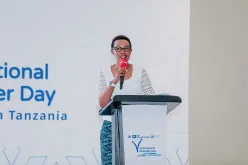2023 marked the midpoint in implementation of the 2030 Agenda for Sustainable Development Goals (SDGs). In the 2023 SDGs report, existing gaps in implementation of the SDGs were underlined. The report also emphasized the immense potential for success through strong political will and the utilization of available technologies, resources, and knowledge.
To get back on track, the report highlighted that urgent actions are needed to change course and reimagine our futures. These actions must be collective, strategic and evidence based.
Such collective action can take many forms, including advocacy, community organizing, and volunteering. When citizens, private individuals and non-state actors accept greater voluntary responsibility for supporting public services, the unit cost of government service provision reduces, potentially freeing resources to improve the overall quality of life for citizens.
Volunteerism as a driving force for collective action
As a basic expression of human relationships, volunteerism is an important driver of collective action.
It facilitates people’s participation in societies and helps create a sense of belonging among communities. The ethos of volunteerism is infused with values such as solidarity, reciprocity, collaboration, cooperation, mutual trust, belonging and empowerment, all of which contribute significantly to a peaceful, harmonious and just societies and consequently, an improved quality of life.
Volunteering in East and Southern Africa
It is evident from practice in the East and Southern Africa region that volunteering facilitates cross-cultural learning and therefore accelerates development through transfer of skills, knowledge, and technology. For example, in Tanzania, where I joined the government, volunteers and other partners to mark the 2023 International Volunteer Day (IVD), I learnt of a Japanese volunteer teacher who is helping make mathematics more understandable to pupils in the Kilimanjaro region. Through unique teaching methods and materials, she has earned praise for helping improve performance in Mathematics among the pupils in the region.
Historically, such cross-cultural exchanges were majorly from countries in the North to countries in the South. This is fast changing. 85% of UN Volunteers are currently from the global south, most of them being national UN Volunteers serving in their countries. In Madagascar, Tiavina, a national UN Youth Volunteer with UNFPA helped foster innovation and increased awareness of sexual and reproductive health issues among young people.
Throughout 2023, 2,391 UN Volunteers served across the East and Southern Africa - the highest number in history for UN volunteers programme (UNV) in the region. Through their service across the UN system, they contributed to development outcomes in the region and beyond, while gaining important experience and skills in the process.
Role of volunteers
It is important to reflect on what impact such volunteer actions have in our societies. This was the context for the commemoration of IVD in 2023. Marked under the theme - If Everyone Did – the commemoration was a call for all of us to reflect on a world where everyone volunteered. At UNV, this call runs beyond the IVD commemoration. It is our vision for the world we want.
In an increasingly materialistic world, we are constantly asking why do some people choose to volunteer? What impact do their volunteer efforts make? What lessons can we pick from their choices and their values that can help us build better communities?
In 2024, we usher in the second half of the Agenda 2030. To speed up progress, it is important to involve everyone. While doing so, I urge policymakers to recognize and support the contribution of volunteers particularly those from informal community systems. The contribution of the most vulnerable and marginalised members of our societies should also be recognized as a contributor to sustainable peace and development. By harnessing the extraordinary power of volunteering to drive collective actions, we can disrupt the patterns of poverty and crises and create a more sustainable, just, and equitable world for all. In the words of the founding president of Tanzania, Julius Nyerere, “If real development is to take place, the people have to be involved."

